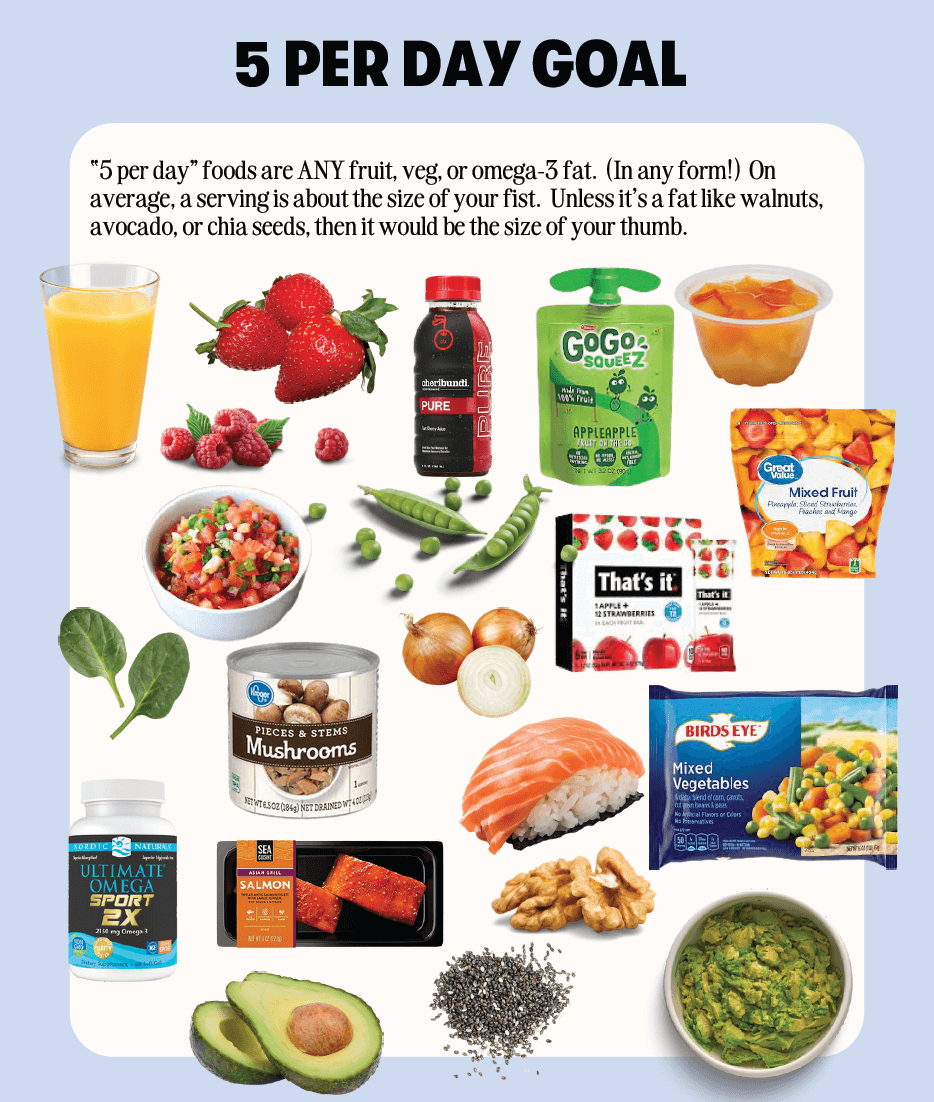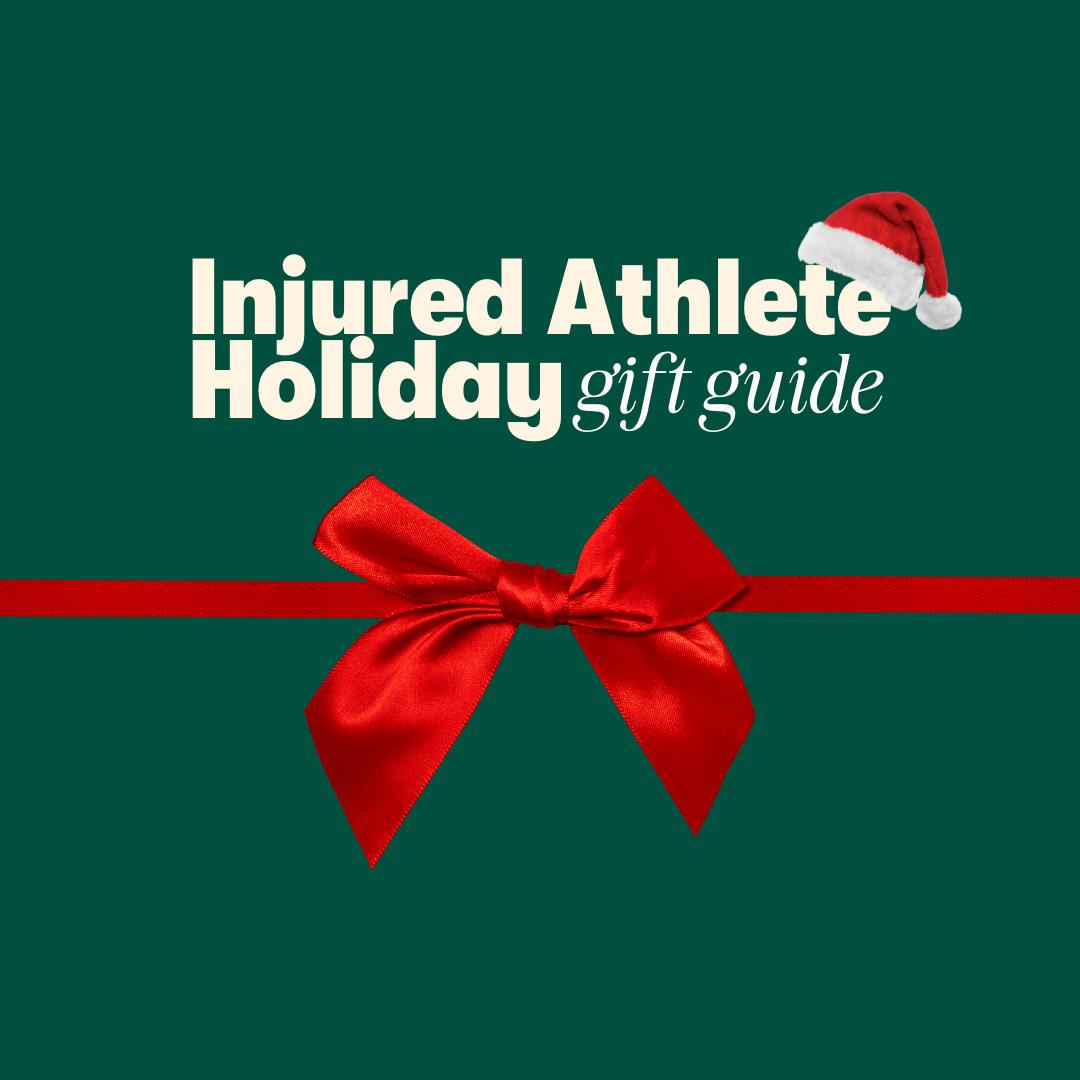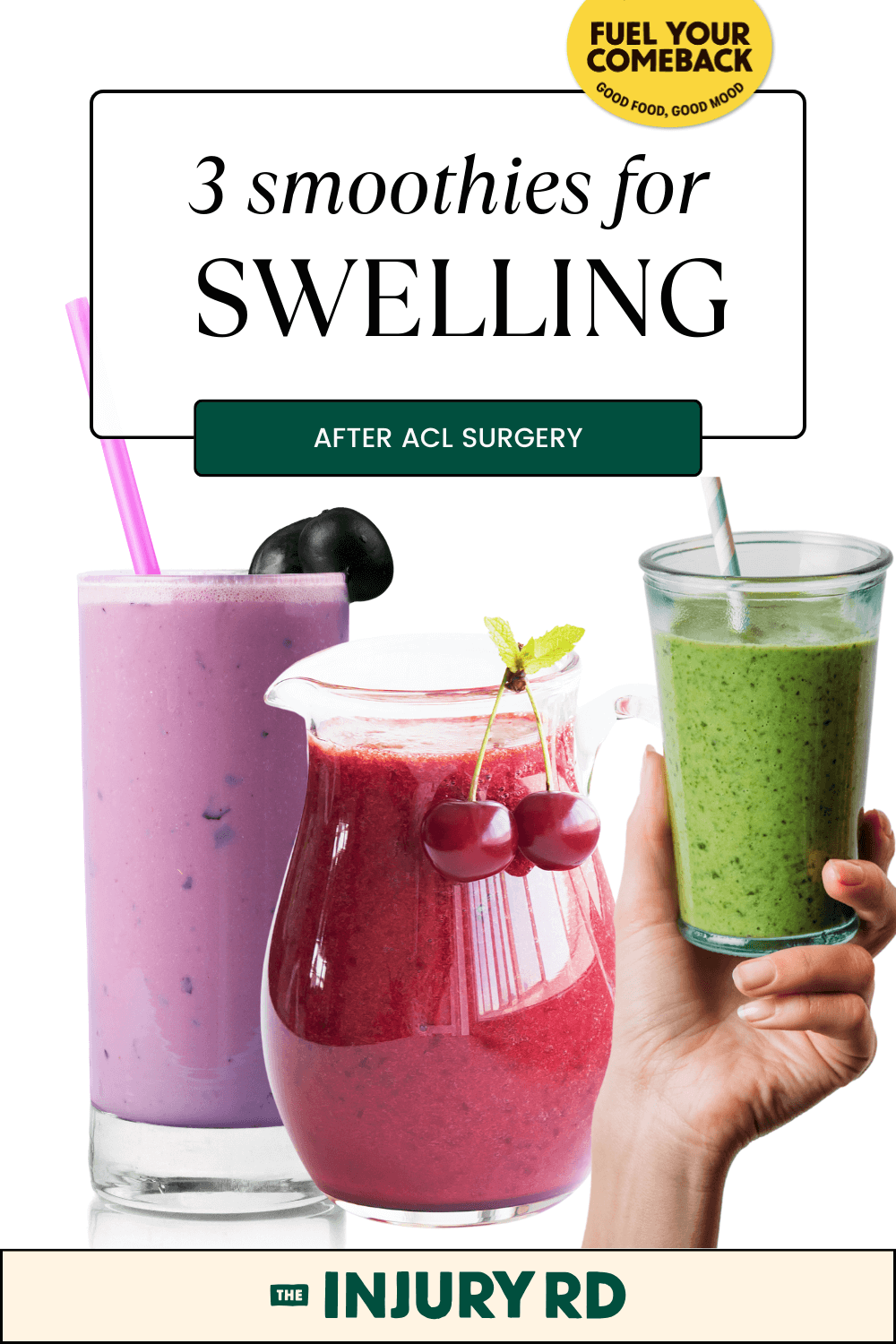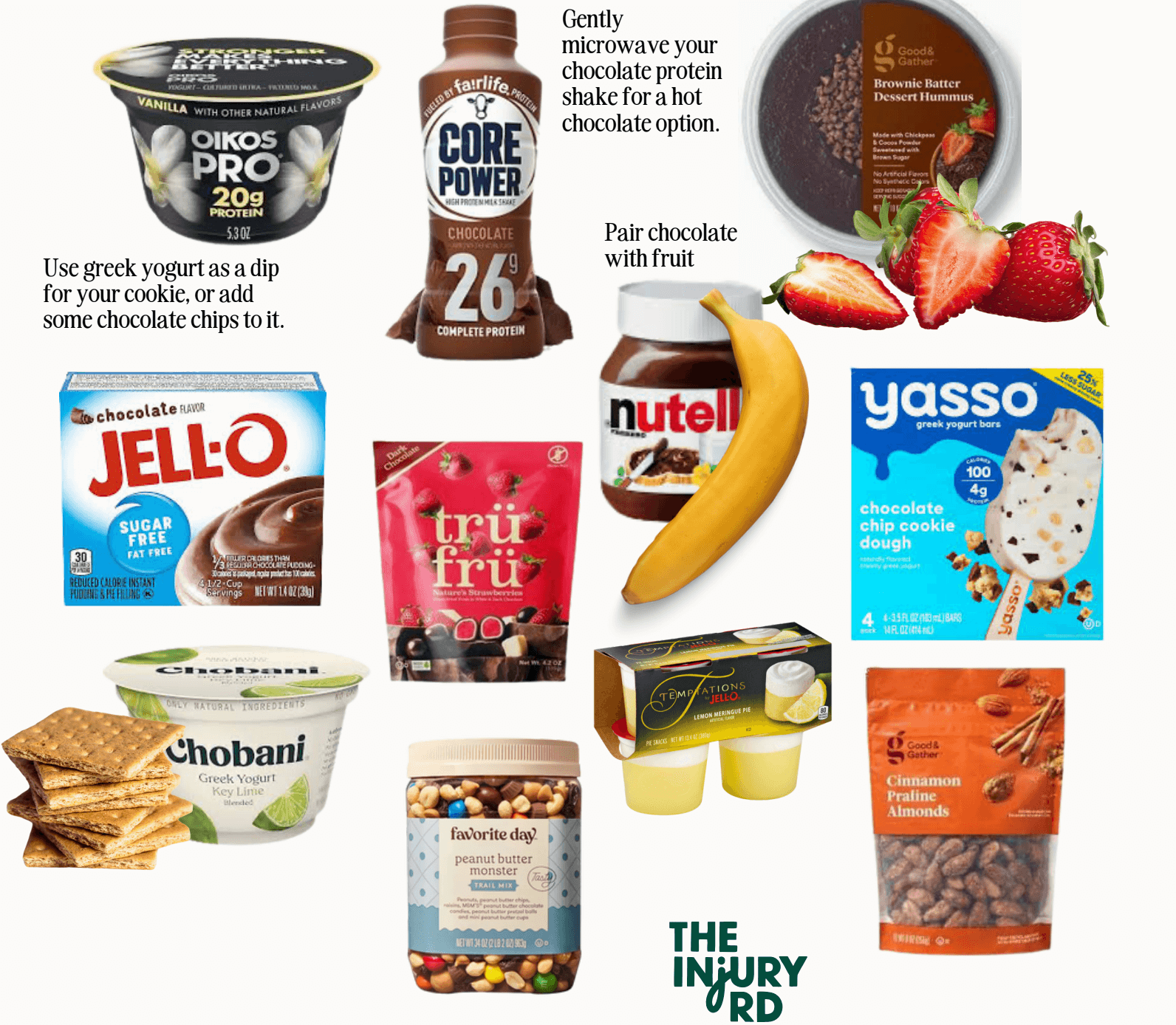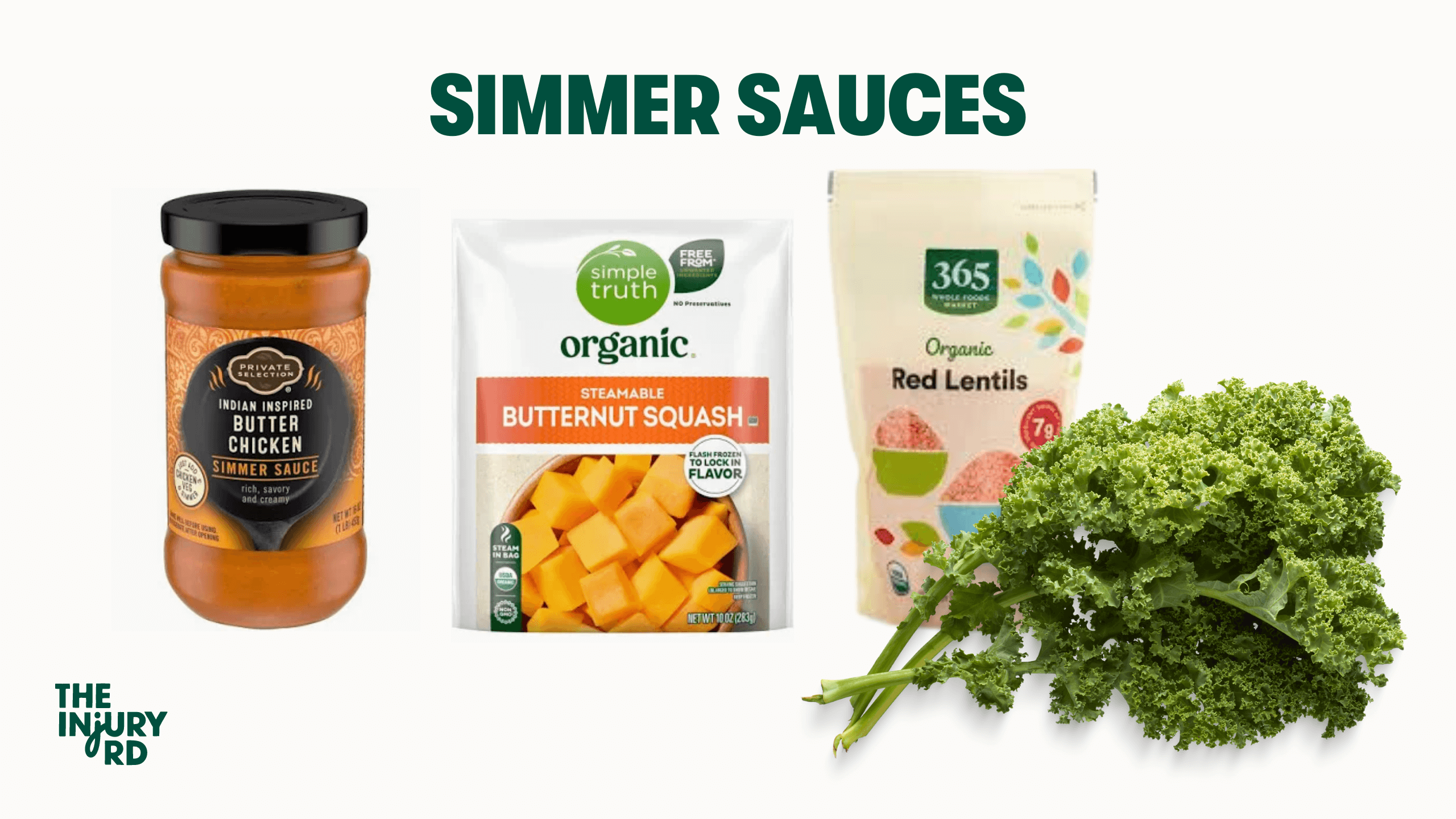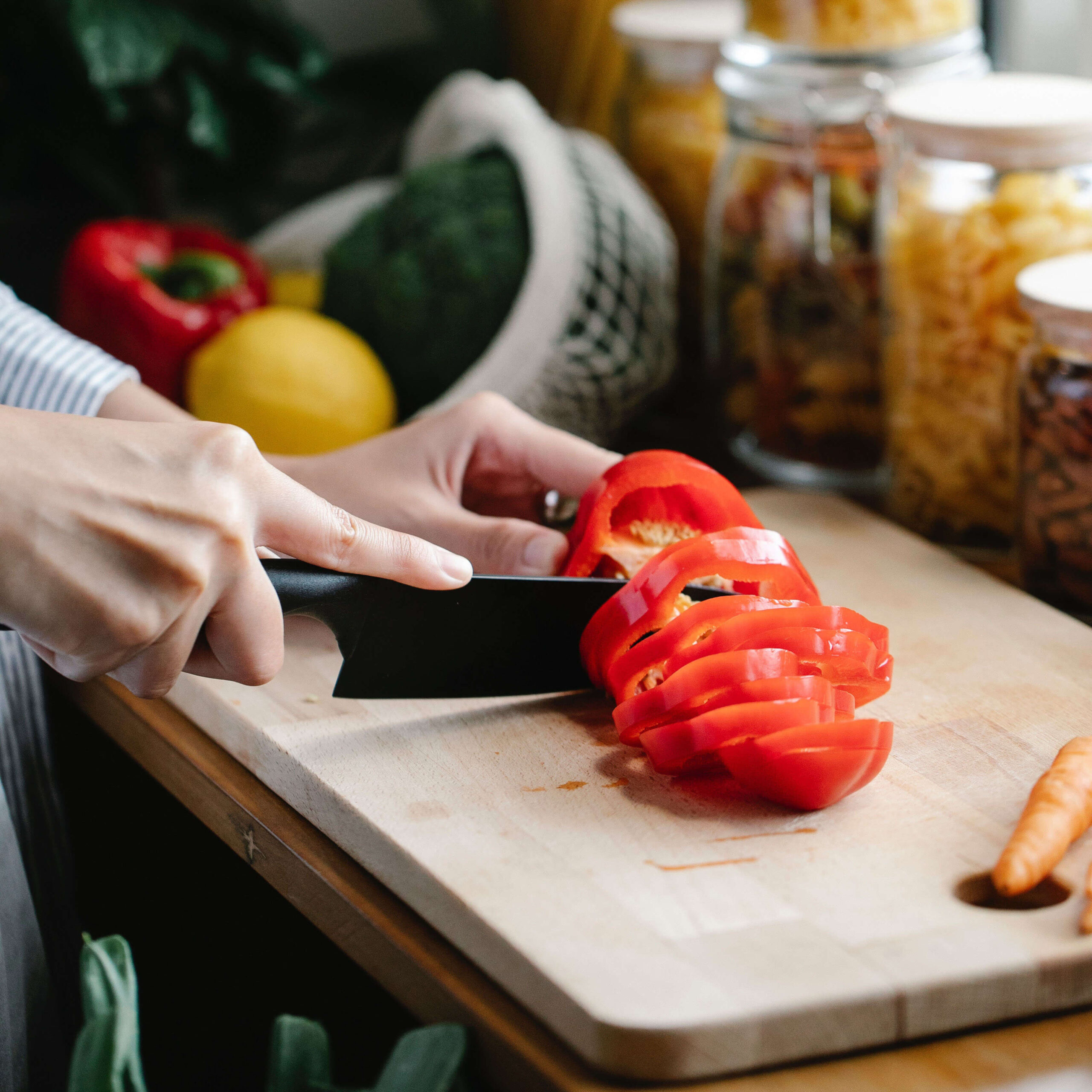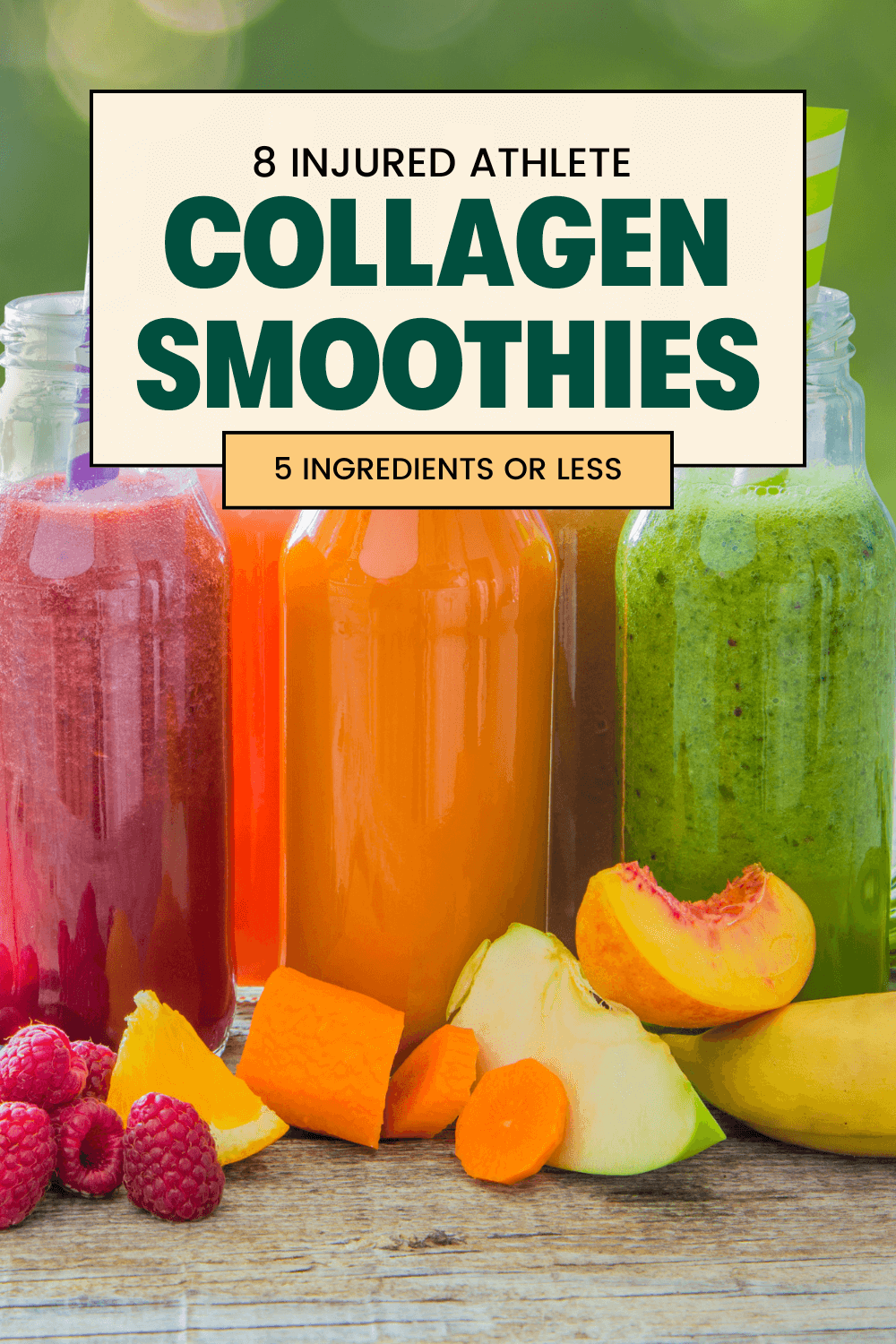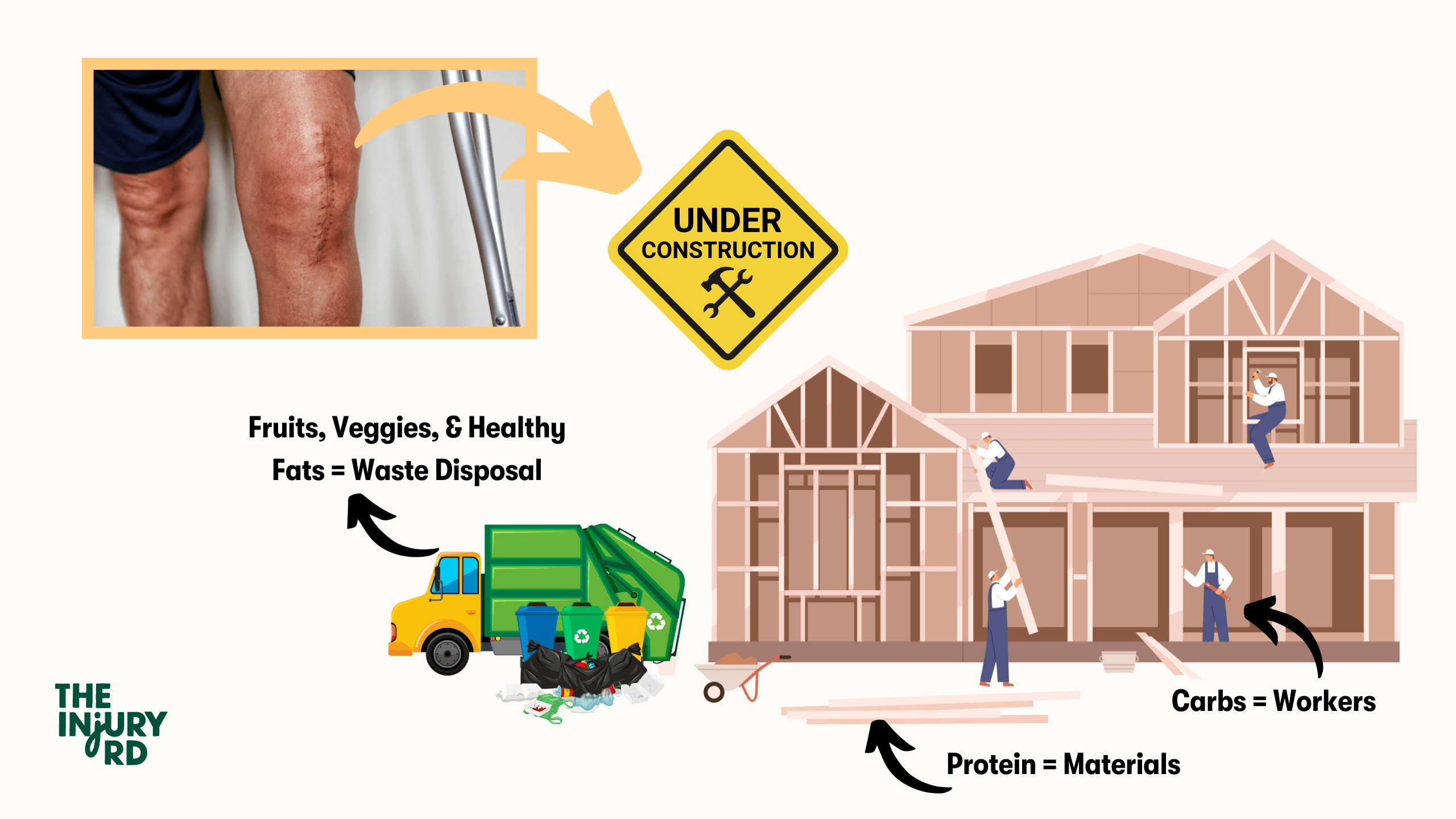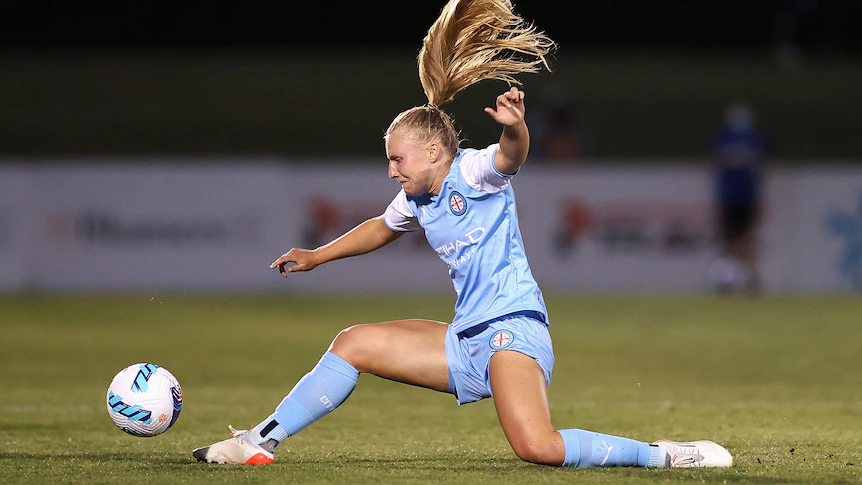Let’s talk about foods that help with swelling after injury.
Or, if you’d prefer to do a bit of a deeper dive, listen to the podcast episode here:
In this article, you’ll learn:
- A checklist to help cover your basics
- More about antioxidants and anti-inflammatory fats
- Does salt impact swelling during an injury?
- A bit about Mother Nature
- My Recommendations
A checklist to help cover your basics:
Think of this like your Strategy Charcuterie Board. Here are some ideas that may help and some that may not be right for you. Choose what feels best!
I’ll encourage you to become a scientific observer of your body. You can physically measure your knee or ankle, etc. (Make sure it’s in the same spot each time!) and compare that pattern to things we discuss in this article. What do you notice impacts your swelling? What do you notice might be helpful?
You could also write down a number, scale of 1-10, how your swelling is feeling day-to-day. Again, compare that to some of these strategies to learn what works best for you.
1. Are you eating enough calories, proteins, and fats?
This will ALWAYS be number one on your injury checklist, and you can learn more about how to answer this question (plus, create some helpful meal ideas) with The Menu Challenge.
2. Are you focusing on antioxidants and anti-inflammatory fats?
I like to use this Five Per Day Goal. Can you eat 5 per day of:
- Any fruit
- Any vegetable
- Any anti-inflammatory fats
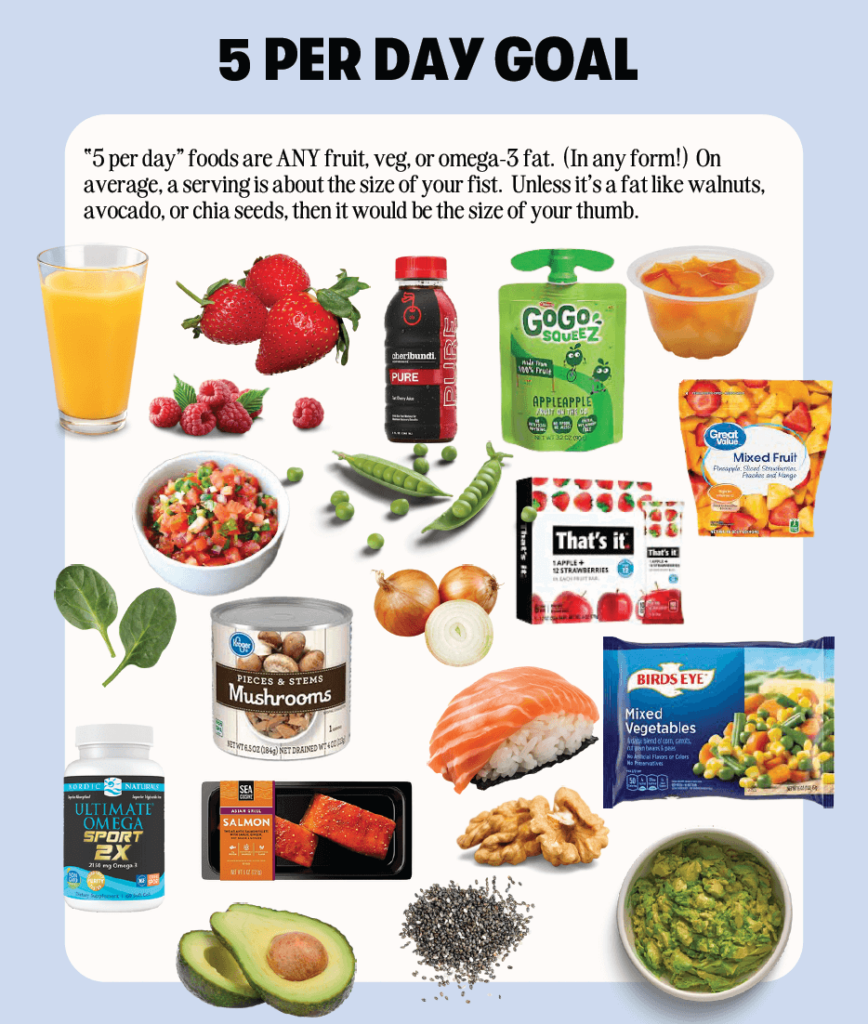
In particular, we’re looking for berries and cherries, and healthy fats like tuna, salmon, avocado, walnuts, and chia.
3. Omega-3’s
Consider adding to your 5 Per Day Goal by including an omega-3 fish oil. This option from Nordic Naturals is one of my favorites.
4. What about salt?
Yes, I think some athletes can improve swelling by reducing salt intake. Not everyone. Again, become a scientific observer!
Foods that tend to be high in salt are frozen foods, fast food, prepared meals, deli meat, etc.
Keep in mind, those are the foods that are REALLY easy for injured athletes to have access to, and I personally care more about you hitting adequate calories and protein than hyperfixating on salt.
This is definitely a strategy in your toolbox, but let’s also be realistic about the barriers. Not everyone has the time or resources to make more food at home, and not every athlete is willing to prepare meals and carry a cooler around campus all day. (I think 99% of athletes wouldn’t do that!)
5. Should I avoid pork for swelling?
We can go down a rabbit hole with this one… It looks like some people are sensitive to histamine, which is high in pork, wine and beer, processed meat, cheeses, sauerkraut, canned fish, etc.
There are also certain fruits and veggies that aren’t themselves high in histamine but can still trigger a histamine response. Personally, I don’t want to go down that rabbit hole with you today. There are other things on this list that I want you to check out first to see if it’s helpful to you.
If you are REALLY struggling with swelling in your injury recovery, consider cutting some of these foods out.
6. How does your cycle impact your swelling?
Another pattern for our period-having athletes to keep in mind is if you are experiencing more swelling around your period and less around ovulation or the middle of your cycle.
Changes in progesterone and estrogen, typically on day one of flow, cause the body to retain more water and salt.
Do you want to add some of these nutrition strategies in then? Maybe if you feel you ARE salt sensitive, that is the week that we really watch that intake. Maybe your period is when you really nail the 5 Per Day Goal.
My Recommendations
In a perfect world, I would…
- Have some sort of data gathered along with a food log, in whatever way doesn’t feel overwhelming to you.
- Daily omega 3 supplement
- Daily polyphenol, like Klean Joint and Muscle or King Orchard’s tart cherry pills
- Daily smoothie or drink mixture that helps with antioxidant load:
- Green tea base, ginger, pineapple juice
- Strawberry banana smoothie
- Pineapple mango ginger smoothie
- “Berry Pie” smoothie with berries, cinnamon, etc.
If that sounds like something you want to do and you want some oversight on it, think about working with me in the Ready to Return Program.
Subscribe to the newsletter to make sure you never miss a helpful tip.
Happy fueling!
